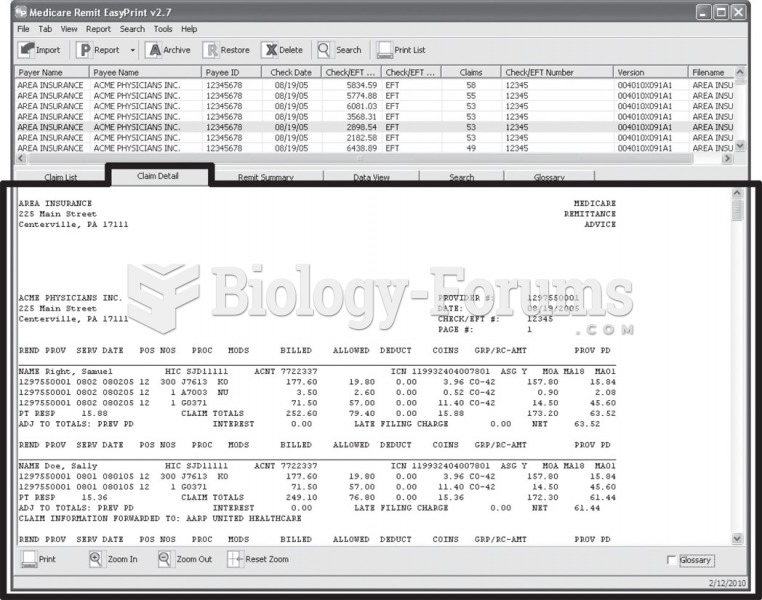|
|
|
The highest suicide rate in the United States is among people ages 65 years and older. Almost 15% of people in this age group commit suicide every year.
Bacteria have been found alive in a lake buried one half mile under ice in Antarctica.
The use of salicylates dates back 2,500 years to Hippocrates's recommendation of willow bark (from which a salicylate is derived) as an aid to the pains of childbirth. However, overdosage of salicylates can harm body fluids, electrolytes, the CNS, the GI tract, the ears, the lungs, the blood, the liver, and the kidneys and cause coma or death.
About 3% of all pregnant women will give birth to twins, which is an increase in rate of nearly 60% since the early 1980s.
Coca-Cola originally used coca leaves and caffeine from the African kola nut. It was advertised as a therapeutic agent and "pickerupper." Eventually, its formulation was changed, and the coca leaves were removed because of the effects of regulation on cocaine-related products.
 Breast cancer. Notice the tumor growing within a lactiferous gland, which occurs in infiltrating duc
Breast cancer. Notice the tumor growing within a lactiferous gland, which occurs in infiltrating duc
 American soldiers advance past a burning oil well. As the routed Iraqi army fled Kuwait, it ignited ...
American soldiers advance past a burning oil well. As the routed Iraqi army fled Kuwait, it ignited ...





